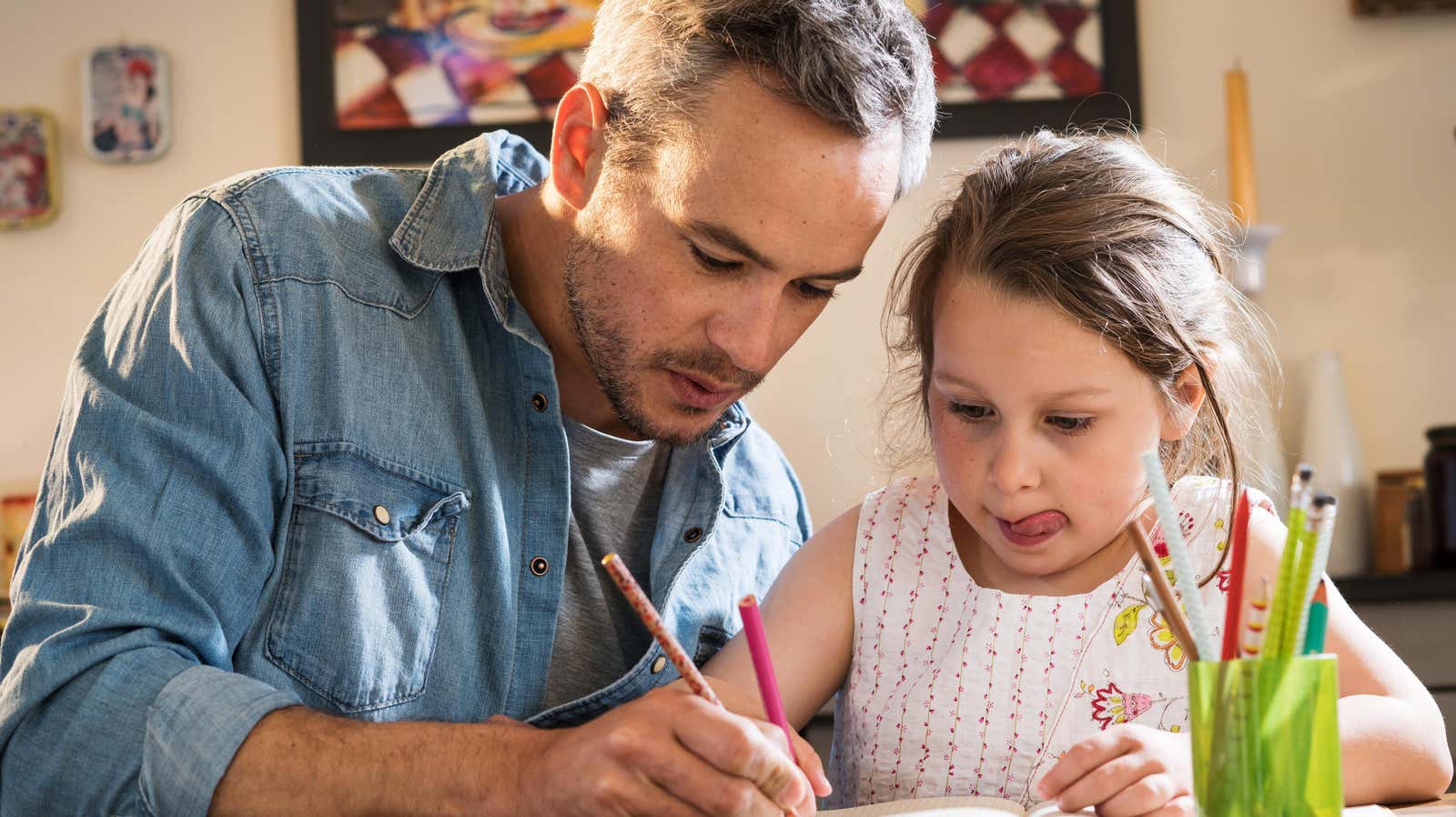How to Instill Perseverance in Your Children

As parents, we see our children struggle to cope with new challenges at all ages and stages. Whether it’s buttoning up their coats, tying their shoelaces, perfecting their lowercase letters, or learning to play the piano, their young lives are full of times when it’s easier to just give up.
But research has shown that one of the strongest determinants of a child’s success later in life is their ability to persevere. As child psychologist Michelle Borba writes for CNBC , “I’ve found that persistence is the number one skill that distinguishes highly motivated kids from those who give up easily.” Similarly, Angela Duckworth , a University of Pennsylvania psychologist and bestselling author of Resilience: The Power of Passion and Perseverance , found in her study of students who demonstrated long-term academic and life success that “the combination of perseverance and self-control, confidence and ambition were the strongest predictors of positive result, not intelligence. Here’s how you can teach it to your children.
Praise efforts, not results
According to a study by Stanford psychologist Carol Dweck , children are less likely to be assertive when they are praised for their innate intelligence (“You’re so smart!”) than when they are praised for their effort and involvement (“You worked so hard!” and ” You were so determined to finish this.” Praise your child’s hard work and dedication, not their performance or a trait they can’t change, like their IQ. (Constant praise for their intelligence leads to more fear of failure, more risk aversion, and a vested interest in doing only those tasks that won’t jeopardize the recognition they receive as “smart”.)
Nurture a growth mindset
According to Dweck, the growth mindset is one in which children understand that their talents and abilities are not fixed, but rather can be developed through hard work, practice, and perseverance. (This is the opposite of “fixed thinking,” in which children believe they are born with and limited to a certain fixed level of intelligence or talent.) By encouraging them to persevere in the face of challenges, they are more likely to survive setbacks and move forward. They will grow up expecting hard work and mistakes to be part of the process, not a sign that they should give up.
Teach by example (including the value of mistakes)
We all benefit from hearing and seeing that we are not alone. Let your kids watch you struggle with a new challenge or challenging project and be honest about your failures and mistakes; let them see that you are doing something “wrong”. Let them know that mistakes are opportunities for growth and learning so they can understand that resilience pays off and failure is not a permanent state. Share stories about yourself or famous athletes, inventors, artists, or historical figures who didn’t reach their goal on their first (or 10th) try, but kept pursuing it and eventually succeeded.
Find the “right” tasks
While it is important for children to excel at certain things, they also need to complete tasks that are slightly above their skill level. The activities your child does should be a combination of what is easy for him and what is moderately difficult – just outside his comfort zone. Remember to set expectations that are neither too high (and therefore alarming and almost unattainable) nor too low (leading to boredom).
Teach positive self-talk
Children — and let’s be honest, many adults — can easily slip into negative self-talk when they don’t get something right the first time. If your child is being hard on himself, he will often blurt out something like, “I can’t do that!” or “I don’t know anything,” teach them a positive replacement phrase they can use when they’re upset. (Barbeau calls this a “hardness statement.”) Things like “it’s okay to make mistakes,” “it doesn’t have to be perfect,” and “I’ll get better with practice.” Keep it short, easy to remember, and ask them to repeat it out loud when they are upset. (They may grumble and resist, but in time they can accept it.)
Let them get upset
Speaking of disappointment…let your kids experience it. Barbeau writes that one of her main parenting rules is: “Never do for your children what they can do for themselves.” While this isn’t always possible (sometimes you just have to walk out the door), it’s a valuable reminder not to rescue them at the first sign of distress. Some struggle is important in teaching children, and doing or solving tasks for them teaches them dependence on you, not self-sufficiency. While the goal isn’t to get our kids to do things they hate in the long run, there’s nothing wrong with a little short-term difficulty. As VeryWellFamily said, “Don’t be afraid of your child’s feelings of sadness or disappointment; that’s how they develop resilience.”
Celebrate small successes
While some setbacks are inevitable and healthy, a child facing repeated setbacks will struggle to persevere. Find small victories to celebrate with your child to build their confidence and morale. Whether it’s putting on the shoes on the right foot, being legible about homework, or filling out a reading diary without prompting, point out and praise minor successes wherever you can.